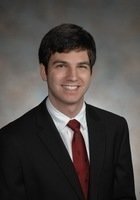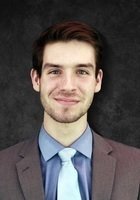Connect with hundreds of tutors like Rebecca
America's #1 Tutoring Platform
Who needs tutoring?
FEATURED BY
TUTORS FROM
- YaleUniversity
- PrincetonUniversity
- StanfordUniversity
- CornellUniversity

Rebecca
Bachelors, Economics and Mathematics (interdepartmental), Cognitive Science, Music Performance
Indiana University-Bloomington
About Me
I have been helping students understand calculus, improve their reading comprehension, and excel on assignments and tests for more than five years. I strive to not only prepare students to exceed academic standards but also to be critical thinkers and curious, well-informed human beings. I recently completed a dual degree at Indiana University and moved to New York to take a gap year before beginning graduate school. As a scholarship student at IU, I majored in economics, cognitive science, and piano performance. Outside of tutoring, you can find me playing or teaching piano, doing jigsaw puzzles, watching TED talks, running, or trying a new food or cooking technique.
Education & Certifications
Indiana University-Bloomington
Bachelors, Economics and Mathematics (interdepartmental), Cognitive Science, Music Performance
Test Scores
SAT
Q&A with Rebecca
Learning and performing academically are both arts and sciences. As a cognitive science major in college, I studied the hard science of how humans learn: reinforcement, attention, pattern recognition, etc. The "art" is not to be underestimated though: this includes things like motivation, talent, response to pressure and stress, etc. As a tutor, I focus on both these aspects of learning and succeeding both in short-term goals like one assignment or longer-term goals like increasing an SAT score or gaining admission to a selective college. If a student has difficulty learning a skill or concept, what would you do? I would relate the concept to one that they already know (i.e. using an analogy) and then point out the similarities and differences. This will help them understand this challenging concept in the context of their other knowledge. Another approach I would use is to combine the big picture with the details. For instance, many concepts that students find confusing can actually be described in one non-technical English sentence. This basic understanding then helps students see how the details fit together rather than just memorizing them. Not to be overlooked, I focus on strengthening students' confidence and motivation throughout the sessions, as these become even more important when students face challenging concepts.
Tutoring Subjects
Connect with a tutor like Rebecca
Connect with a tutor like Rebecca
Tutors with Similar Experience


